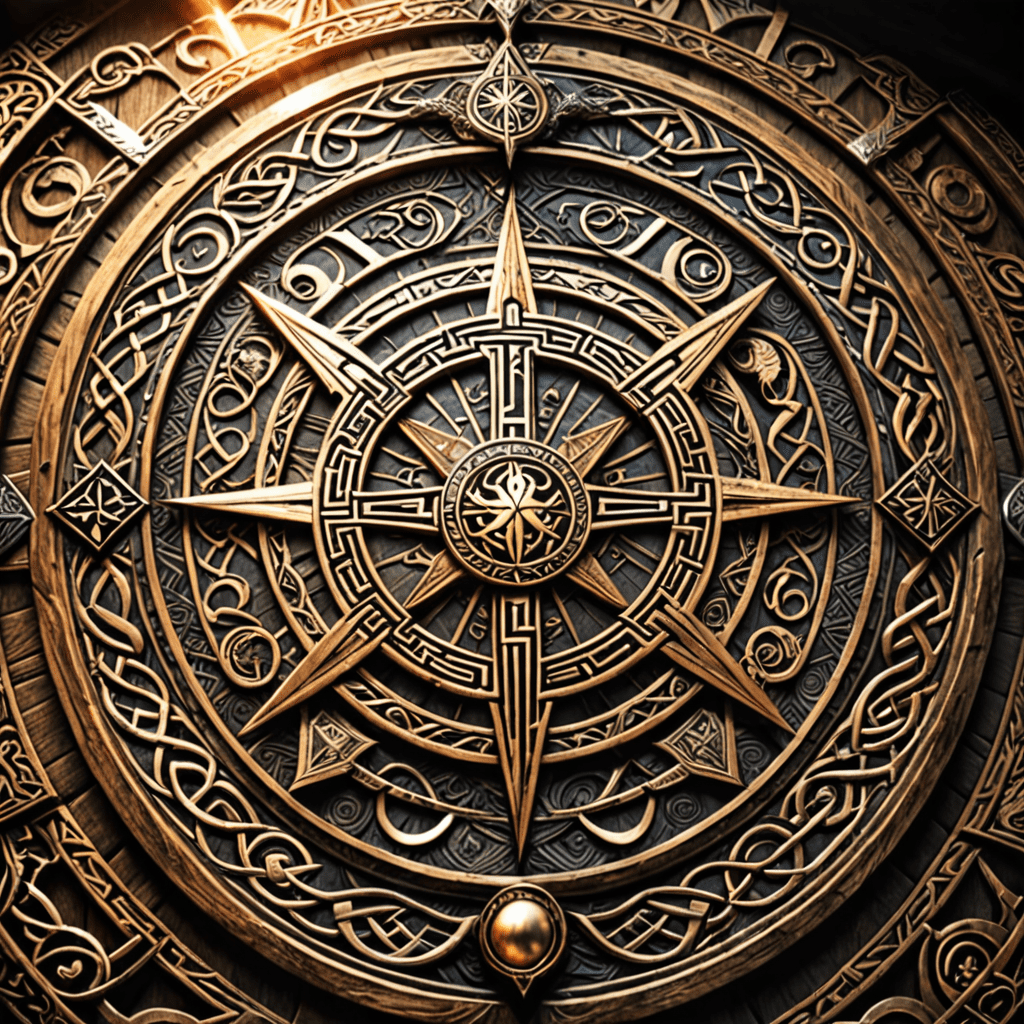The Faces of Transformation: Iconic Myths That Challenge Perception
Introduction: Understanding Transformation Through Myths
Transformation is a fundamental concept in both cultural and psychological contexts, referring to profound changes that alter an individual’s or society’s state of being. These transformations can manifest in various forms, such as personal growth, societal shifts, or spiritual enlightenment. Myths play a crucial role in shaping our perceptions and beliefs about these transformations. They serve as narratives that encapsulate the essence of change, often depicting characters who undergo significant metamorphoses, thus providing a framework for understanding our own journeys.
This article will explore several iconic myths that challenge our perceptions of transformation. By examining the archetypes and stories from different cultures, we can gain insights into how these narratives help us navigate our own experiences of change.
The Hero’s Journey: Myth as a Catalyst for Change
One of the most profound frameworks for understanding transformation in myths is Joseph Campbell’s concept of the Hero’s Journey. This narrative structure outlines a hero who ventures into the unknown, faces challenges, and ultimately returns transformed. The journey consists of several stages, including the call to adventure, initiation, and the return.
Examples of myths that showcase transformation through the Hero’s Journey include:
- Hercules: The myth of Hercules depicts his twelve labors, which serve as trials that lead to his ultimate redemption and transformation from a mortal into a divine figure.
- Odysseus: In Homer’s “Odyssey,” Odysseus’s long journey home is filled with challenges that transform him from a proud warrior into a wise and humble leader.
These narratives inspire personal growth by illustrating that challenges and adversities can lead to profound insights and societal change, reinforcing the idea that transformation is often a result of struggle.
The Alchemical Transformation: From Base to Noble
Alchemy, often viewed as a mystical pursuit of turning base metals into gold, serves as a powerful metaphor for personal and spiritual transformation. The alchemical process symbolizes the journey from ignorance to enlightenment, from the mundane to the extraordinary.
Key figures in alchemical myths include:
- Merlin: The legendary wizard represents the wisdom that guides individuals through their transformative journeys.
- The Philosopher’s Stone: This mythical substance symbolizes the ultimate goal of transformation, representing the attainment of knowledge and spiritual awakening.
In modern psychology, alchemical transformation reflects the processes of self-discovery and personal growth, emphasizing the importance of inner change as a precursor to external transformation.
Myths of Rebirth: The Phoenix and Other Symbolic Creatures
One of the most enduring symbols of transformation is the phoenix, a mythical bird that rises from its ashes after death. This myth encapsulates the idea of renewal and rebirth, serving as a potent reminder that endings often pave the way for new beginnings.
Other myths of rebirth include:
- Osiris: In Egyptian mythology, Osiris’s resurrection symbolizes the cycle of life, death, and rebirth, reflecting the eternal nature of the soul.
- Persephone: The myth of Persephone illustrates the duality of life and death, as her annual descent into the underworld and return signifies the changing seasons and the cyclical nature of existence.
These rebirth narratives have profound psychological effects, fostering resilience and inspiring individuals to embrace change as a pathway to recovery and renewal.
The Trickster: Challenging Norms and Perceptions
The archetype of the trickster, represented by figures such as Loki in Norse mythology and Hermes in Greek mythology, embodies the spirit of chaos and transformation. Trickster myths often subvert traditional narratives, challenging societal norms and perceptions.
These narratives reveal how tricksters play a crucial role in transformation by:
- Questioning authority and established norms.
- Encouraging individual identity and self-expression.
- Highlighting the importance of adaptability and cleverness in the face of challenges.
Trickster myths remind us that transformation often requires breaking free from conventional boundaries and embracing the unpredictable nature of life.
Transformation Through Adversity: Myths of Suffering and Growth
Many myths center around themes of suffering, illustrating how hardship can lead to personal transformation. The stories of figures such as Job from the Bible and Prometheus from Greek mythology delve into the complexities of suffering and its role in shaping character.
These myths emphasize the connection between adversity and growth, showcasing how:
- Suffering can foster resilience and strength.
- Challenges can lead to profound personal insights and wisdom.
- Overcoming hardship is often a catalyst for transformation.
In modern narratives, these themes resonate strongly, as individuals continue to find inspiration in the stories of those who have triumphed over adversity.
Cultural Myths: Diverse Perspectives on Transformation
Transformation is a universal theme found in myths across cultures. By exploring transformative myths from various traditions, including Native American, African, and Asian cultures, we can gain a deeper understanding of how these narratives reflect cultural values and beliefs surrounding change.
For example:
- In Native American mythology, the story of the spider woman embodies creativity and the interconnectedness of life, illustrating transformation through community and collaboration.
- African myths often depict transformation as a communal journey, emphasizing the role of ancestral spirits in guiding individuals through personal changes.
- In Asian cultures, myths like the story of the Buddha highlight the transformative power of enlightenment and self-discovery.
These cross-cultural perspectives enrich our understanding of transformation, offering valuable lessons about resilience, community, and the human experience.
Modern Interpretations: Myths in Contemporary Media
Iconic myths have been reimagined in contemporary media, revealing their relevance in addressing current societal issues. Films, literature, and art often draw upon these ancient narratives to explore themes of transformation.
Notable modern retellings include:
- The Matrix: This film reinterprets the Hero’s Journey, exploring themes of reality, choice, and personal awakening.
- Harry Potter: The journey of Harry Potter mirrors the classic hero’s journey, showcasing transformation through friendship, sacrifice, and the battle against evil.
These modern interpretations highlight the enduring nature of myths, illustrating how they continue to resonate with audiences and provide frameworks for understanding contemporary challenges.
The Psychological Impact of Myths on Personal Transformation
Myths serve as powerful tools for personal transformation, offering insights into the human experience and the processes of change. They resonate with our emotions and experiences, providing a sense of connection to something greater than ourselves.
Through the exploration of these iconic myths, we can glean valuable lessons about:
- The importance of embracing change as a natural part of life.
- The role of adversity in fostering growth and resilience.
- The power of community and shared narratives in shaping our identities.
Ultimately, the faces of transformation depicted in these myths challenge our perceptions and inspire us to navigate our personal journeys with courage and hope.
![]()


